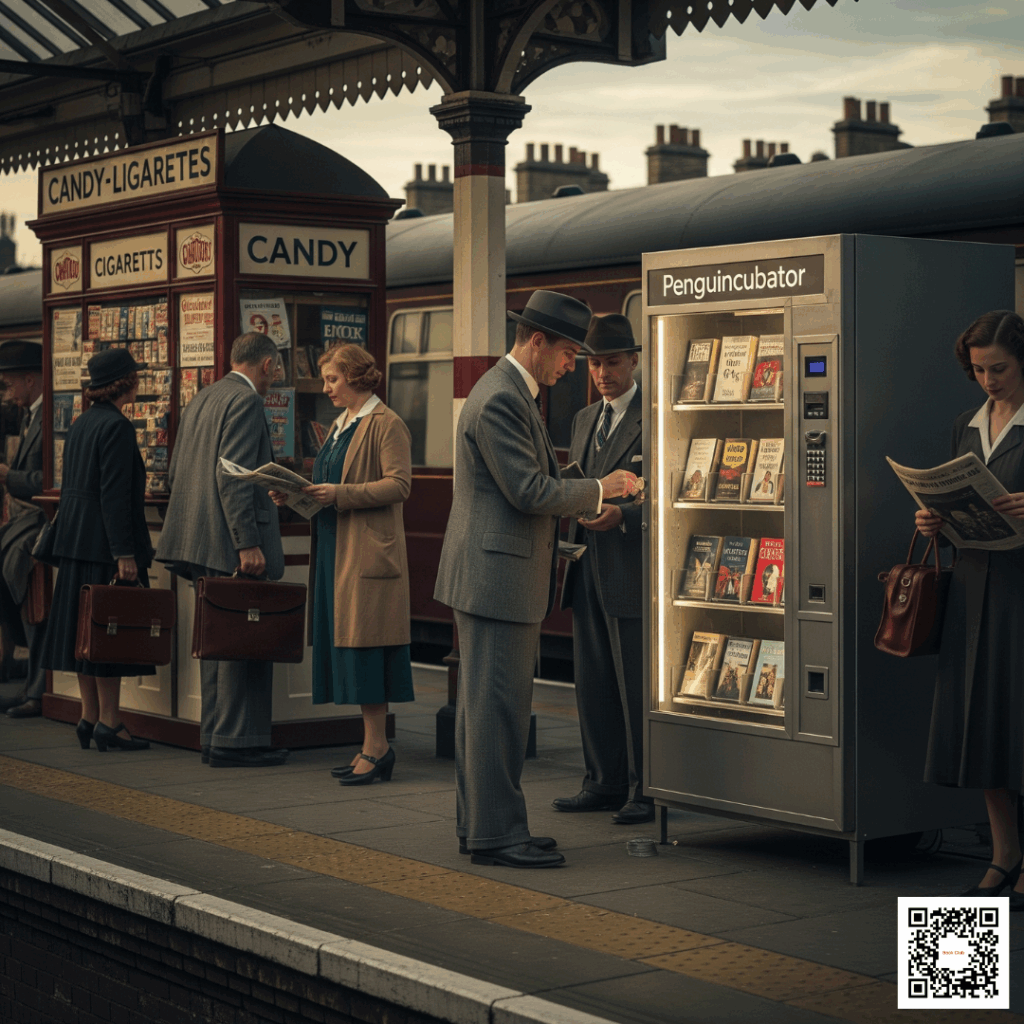Some trivia is too good to keep to yourself. It’s the kind you carry around in your back pocket — not because it’ll win you a prize, but because it reminds you how much good can come from one simple idea.
In 1937, long before anyone considered putting ebooks on phones or stories into earbuds, a British publisher named Allen Lane stood on a train platform in London. He had just visited a friend and had nothing to read for the ride home. The kiosks were filled with cigarettes and candy — but no books. No Mysterious Affair at Styles. No Room of One’s Own. No Dickens. No escape.
That platform sparked a thought.
Why not sell books like candy bars?
So, Lane went home and got to work. What came from that moment was something he called the Penguincubator — a vending machine that sold paperbacks. Drop in sixpence, and out came a book. Not a digest. Not a chapter. A whole book. Full-length, real literature. For a price almost anyone could afford.
He placed the first one in a London train station beside the other vending machines. It looked a little like a breadbox. A little like a safe. Boxy and plain. But inside were stories, and that made all the difference.
This wasn’t a novelty. It was the beginning of something new.
Up until then, books were mostly hardbound, pricey, and aimed at a certain kind of reader — those with time and money. Lane, the founder of Penguin Books, believed books should belong to everyone. His paperbacks didn’t cut corners. They didn’t leave chapters out. He promised quality writing at a fair price.
And the Penguincubator delivered.
It was a small machine, but it opened a wide door. Workers heading home could grab a novel as easily as a chocolate bar. Travelers could discover new authors between destinations. Literature, once locked behind bookstore counters, was now as accessible as a snack.
And it caught on.
Penguin’s paperbacks were a success. Not because they were cheap — but because they were trusted. Readers knew they were getting the real thing, just in a form that fit in a coat pocket or a purse.
The Penguincubator didn’t stay around forever. As book distribution improved and paperbacks became easier to find, the machines faded. But their legacy held. They had proven something simple and lasting — people want stories. And when you make those stories available, they’ll reach for them.
You can still find photographs of the machine today. It stands against a wall, unassuming, almost easy to miss. But in its time, it did something big. It showed that the right story, delivered simply, can go farther than expected.
There’s something timeless about that idea.
So next time you pass a vending machine — whether it’s selling soda or souvenirs — picture what it could have been. Or still could be. Maybe it’s time the Penguincubator returned, this time offering eBooks or short stories by local authors. Maybe it’s time we remembered what a sixpence and a paperback once gave the world.
Because candy bars might give you a sugar rush — but a good book? That stays with you for the ride.
Help Us Spread the Word
If this trivia made you smile or taught you something new, why not pass it on? Readers love curious facts — and writers do too. Here’s how you can help:
- Share the post on Facebook or in a book club group
- Forward it to someone who enjoys little-known stories
- Talk about it at your next book club meeting
Invite others to join us here:
www.publicationconsultants.com/newsletter
We’re growing a book-loving community one great story at a time. Your share might be why someone falls back in love with reading — or dares to start writing.


